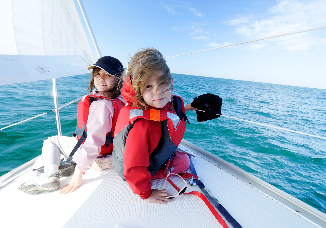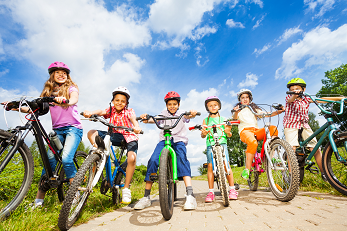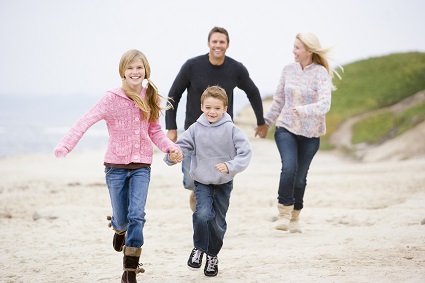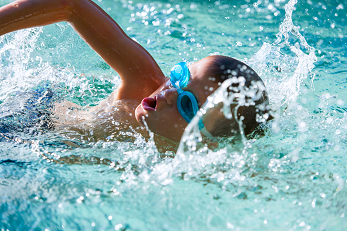Primary Times - the definitive what’s on and where to go family guide of activities and events for children of primary school age. Things to do with your kids during the school holidays including arts and craft activities, music and theatre for children, parties, competitions, days out, and family attractions along with term time drama schools, dance classes, after school clubs and sports activities. Things to do at a place near you!
Help your Child get Active
(In association with Public Health England)
By Eustace de Sousa, National Lead for Children and Young People and Kevin Fenton, Director of
 Health and Wellbeing at Public Health England
Health and Wellbeing at Public Health England 
As the summer holidays approach, now is a great time for children and young people to get into the habit of becoming more physically active.
Not being in the classroom means there are more opportunities during the holiday months for children to get out and about. Encouraging regular exercise, little and often, is a key step towards making it the default for children, rather than an effort.
Parents can set an important example, and of course joining in means they also become more active.
We all know that physical activity is good for you and that it can contribute towards maintaining healthy weight levels. But it also leads to a whole range of other benefits for children and young  people, such as healthy growth and development, improved physical coordination particularly for younger children, increased cognitive outcomes and school attainment, and improved social interaction and confidence.
people, such as healthy growth and development, improved physical coordination particularly for younger children, increased cognitive outcomes and school attainment, and improved social interaction and confidence.
A wealth of evidence shows that on the whole, active children and young people do better.
Children and young people generally need more physical activity than adults for good health and development.
The current guidelines from the Chief Medical Officer recommend that all children and young people over five years of age do physical activity of at least moderate intensity for a minimum of 60 minutes, and up to several hours, every day.
This includes activities that strengthen muscle and bone, on at least three days a week. The guidelines also advise that all children and young people should minimise the amount of sitting time for extended periods.

It is worrying that in England, 79% of boys and 84% of girls aged 5 to 15 do not meet these recommendations, and this figure is increasing.
The gap between boys’ and girls’ activity levels can be seen from as early as seven years old. Regular physical activity is a habit which needs to be encouraged early on; if children don’t develop the physical skills and confidence to be active during childhood, the chance of them being active later in life is significantly less.
We are seeing a generation growing up in environments that make it easier to be sedentary and children and young people are now moving and roaming about less.
It is important during the summer holiday period, when there is more time to sit in front of a screen, that long periods of inactivity are kept to a minimum. But how can we get our children away from their screens, which is the default recreational pastime for many?
 Do something every day - make it part of the daily routine
Do something every day - make it part of the daily routine
Every ten minutes of exercise that raises the heart rate helps. Ideas can include walking or cycling instead of using the car for local trips, or finding out about popular walking and cycling routes and locations in your area.Breaking up the 60 minutes of physical activity that children need each day into ten minute bursts is often a more appealing and manageable way of reaching a daily target.
Parents should be good role models
Once learnt, a skill like swimming or riding a bike is there for life. Doing activities together as a family is also a very important time for building positive relationships.
Adding a competitive element to activities, such as signing up for a challenge together, working towards a fun run, charity walk or cycle, can also add some motivation which many children respond positively to.

Try out new activities
Check out what is available locally with your council and sports clubs.
Trying different sports and activities to find the ones that your children will enjoy the most can also help to boost their confidence, increase their sociability and cognitive functions.
The 2016 Olympics in Rio will be a great source of inspiration for children who may want to pursue a specific sporting activity.
Keep it fun
It is important to make an activity fun, and it doesn’t have to be too strenuous. To maintain an interest, join in with one of your local council’s leisure and sporting activities or join a local sports club. Not only are these activities fun, but they set children up for a healthier future.
Public Health England runs the 10 Minute Shake Up initiative every year to help get children moving. Launching in July, in partnership with Disney, the 10 Minute Shake Up will offer fun content to get children moving for ten minutes, with this year’s focus on encouraging children to get more involved in swimming.
Last summer’s campaign resulted in children in England being active for an extra 104 million minutes. There is more information about the 10 Minute Shake Up and all sorts of other ideas and information about moving more on the Change4Life website at www.change4life.org.
Being active at every age increases everyone’s quality of life and chances of staying healthy, whether it’s walking, cycling, swimming or other sports and activities. So look out for ways to make little adjustments so you and your child can get moving more and contribute towards the daily activity total.
We can all play a part in helping promote exercise as a habit and making sure it remains part of our children’s daily lives.




